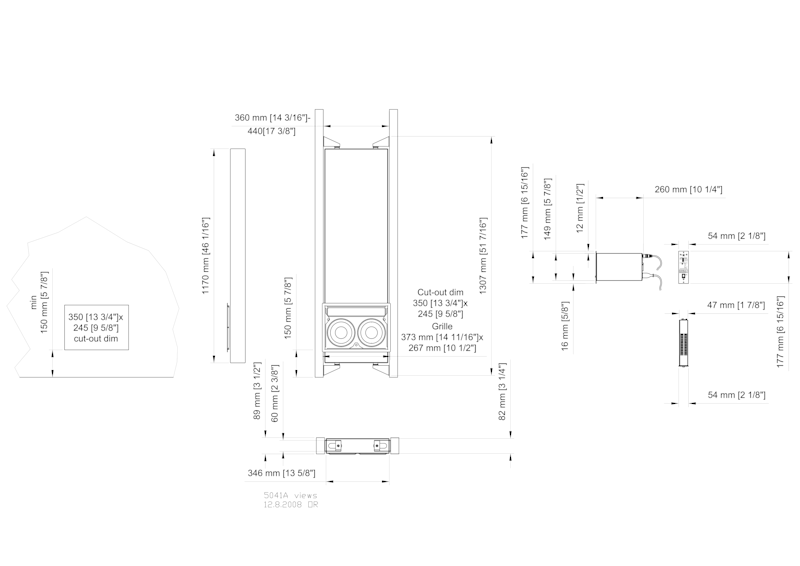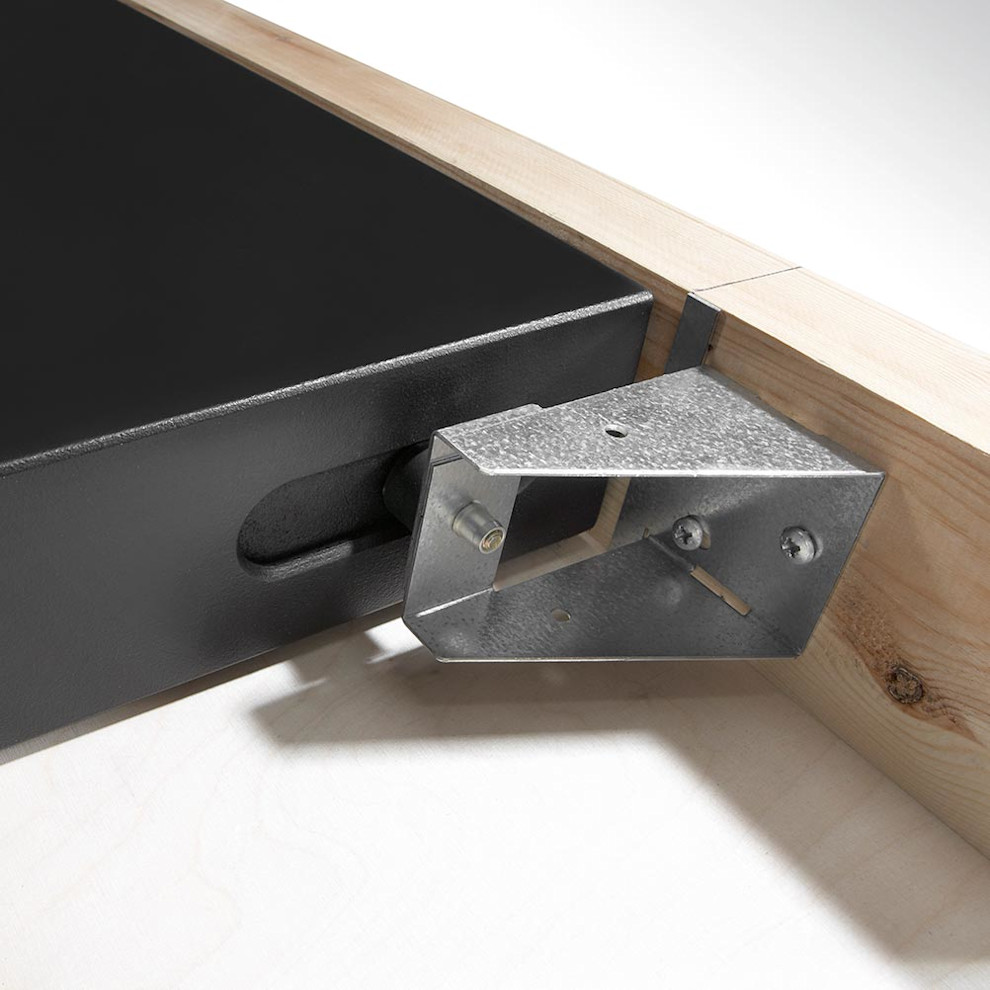Designed to complement our 4000 series installation speakers, the 5041A is the first in-wall subwoofer to offer truly professional performance.
This product is no longer in production.
Designed to complement our 4000 series installation speakers, the 5041A is the first in-wall subwoofer to offer truly professional performance.
This product is no longer in production.

SPL
105 dB

Amplifier Power
103 W Bass

Frequency Response
35 Hz - 95 Hz (-6 dB)

Accuracy of Frequency Response
± 3 dB (35 Hz - 95 Hz)

Driver Dimensions
2 x ⌀ 165 mm Bass (view in inches)

Dimensions
H 1170 x W 346 x D 82 mm, (view in inches)

Weight
15 kg / 33.1 lb

Connections
1 x XLR Analog Input
1 x RCA Analog Input
1 x XLR Analog Output
Designed to complement our 4000 series installation speakers, the 5041A is the first in-wall subwoofer to offer truly professional performance.
This product is no longer in production.
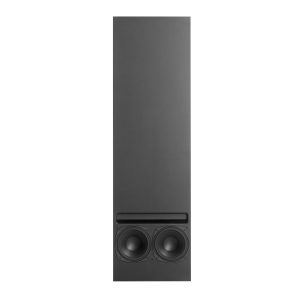
35 Hz - 95 Hz (± 3 dB)
Low cutoff -6dB
35 Hz
High cutoff -6dB
95 Hz
Peak SPL Maximum peak SPL output with random pink noise, measured in half space at 1 meter.
≥110 dB
Short term max SPL Maximum short term sine wave SPL output averaged from 40 to 85 Hz, measured in half space at 1 meter.
≥105 dB
Self-generated noise Self generated noise level in half space at 1 m on axis (A-weighted).
≤15 dB
Height
1170 mm
Width
346 mm
Depth
82 mm
Driver type
N/A
Count
2
Diameter
165 mm
Height
177 mm
Width
54 mm
Depth
260 mm
Weight
1.4 kg
(3.1 lb)
100-240 VAC 50/60Hz
Input Analog signal input connector XLR female, balanced 10 kOhm.
Input Analog signal input connector XLR female, unbalanced 10 kOhm.
Output Analog signal "LINK OUT" output connector XLR male, balanced 10 kOhm.
When installed, all that can be seen of the 5041A is a small, unobtrusive metal grille on the wall. However, its powerful, precise and dynamic bass response right down to 35 Hz will leave you in no doubt about its credentials as a premium quality subwoofer. The 5041A can be mounted in any 16 inch stud bay, with independent brackets ensuring that its slimline enclosure is completely isolated from all surfaces, preventing any potential vibration from being transmitted to the walls of the building.
Genelec’s active approach means that the 5041A is powered by an individually calibrated remote-mounted amplifier module, thus avoiding any issues with amplifier/speaker matching. The amplifier can be rack mounted and features Room Response Controls for optimising the bass roll-off and phase of the 5041A to match any acoustic environment - along with Autostart and Remote Control capabilities.

Active Crossovers

Optimised Amplifiers

Protection Circuitry

Room Response Compensation

Audio electronic crossovers allow the audio signal to be split into separate frequency bands that are separately routed to individual power amplifiers, which are then connected to specific transducers optimised for a particular frequency band.
Active crossovers come in both digital and analogue varieties. Genelec digital active crossovers include additional signal processing, such as driver protection, delay, and equalisation.
Genelec analogue active crossover filters contain electronic components that are operated at low signal levels suitable for power amplifier inputs. This is in contrast to passive crossovers that operate at the high signal levels of the power amplifier's outputs, having to handle high currents and, in some cases, high voltages.
In a typical two-way system the active crossover needs two power amplifiers — one for the woofer and one for the tweeter.
Using the active approach enables frequency response adjustments and optimisation of the full loudspeaker system, placed in various room environments, without expensive external equalisers. The end result is a simpler, more reliable, efficient, consistent and precise active loudspeaker system.

Audio electronic crossovers allow to split the audio signal into separate frequency bands that can be separately routed to individual power amplifiers, which are then connected to specific transducers optimised for a particular frequency band.
In a typical 2-way loudspeaker system, the active crossover needs two power amplifiers — one for the woofer and one for the tweeter. The power amplifiers are connected directly to the drivers of an active loudspeaker, resulting in the power amplifier’s load becoming much simpler and well known. Each driver-specific power amplifier has only a limited frequency range to amplify (the power amplifier is placed after the active crossover) and this adds to the ease of design.

When working in critical audio production environments it is essential that monitoring systems remain reliable and functional at all times. One of the main reasons behind Genelec’s excellent success in broadcasting environments is the reliability of our products and a key element behind the reliability is the internal protection circuitry found in all products since 1978.
The protection circuitry prevents driver failures by detecting signal levels, and in case of sudden peaks or constantly too high levels, taking the signal level down automatically. Of course this feature does not affect the sound quality in any way when working within the specifications of the loudspeaker, but only prevents inadequate input signals from breaking the loudspeaker.
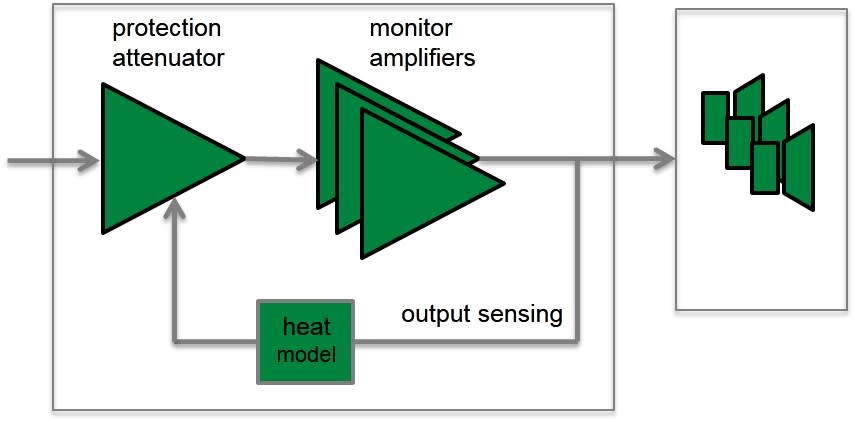

The interaction between room acoustic and loudspeaker radiation is complex. Each room changes somewhat the monitor’s response in a unique way, e.g. reflective vs. damped rooms, or placement against a wall vs. on a stand away from the walls.
All Genelec loudspeaker systems feature room response adjustments to compensate for the room influences and retrieve a flat frequency response at the listening position.
Genelec analogue loudspeaker systems provide versatile Room Response Controls. They include (depending on models):

At low frequencies two main controls are provided. The Bass Tilt control, which acts as a shelving filter together with the Bass Roll-off control allowing you to optimize the low and very low frequency response of the system in different installations. Bass, midrange and treble level controls are provided in large systems. These controls allow to optimize the relative balance between the various pass bands.
The operating manual and datasheet of each loudspeaker contains a list of preferred room response control settings for different installations. These have been specified out of long practical experience and measurements of various kind of typical acoustic environments.
Genelec SAM Systems offer a comprehensive, solution-oriented, intelligently networked product range which all feature Genelec Loudspeaker Manager (GLM™) software and its automatic calibration system called AutoCal™.
Genelec AutoCal provides the industry’s first integrated process for complete automated measurement, analysis, and adjustment of every monitor on the GLM control network. The system measures the response in the listening area and applies relevant compensation in the low and low-mid frequencies to minimise the detrimental room acoustic anomalies as well as the differences between various listening positions. AutoCal also aligns relative levels, time-of-flight, as well as adjusts correct crossover phase (called AutoPhase) for all subwoofers on the network.

The Acoustic Response Editor provides accurate graphical display of the measured response, filter compensation and the resulting system response for each monitor, with full manual control of acoustic settings.
Would you like to match your speakers with your interior design?
No problem – simply choose from our wide range of colour options.
The representation of RAL colours is made by courtesy of RAL gGmbH, 53229 Bonn. Please note that this screen tool and the printable colour-selection PDF do not give an accurate representation of RAL colours. Please use the official RAL fan to determine colours before ordering.
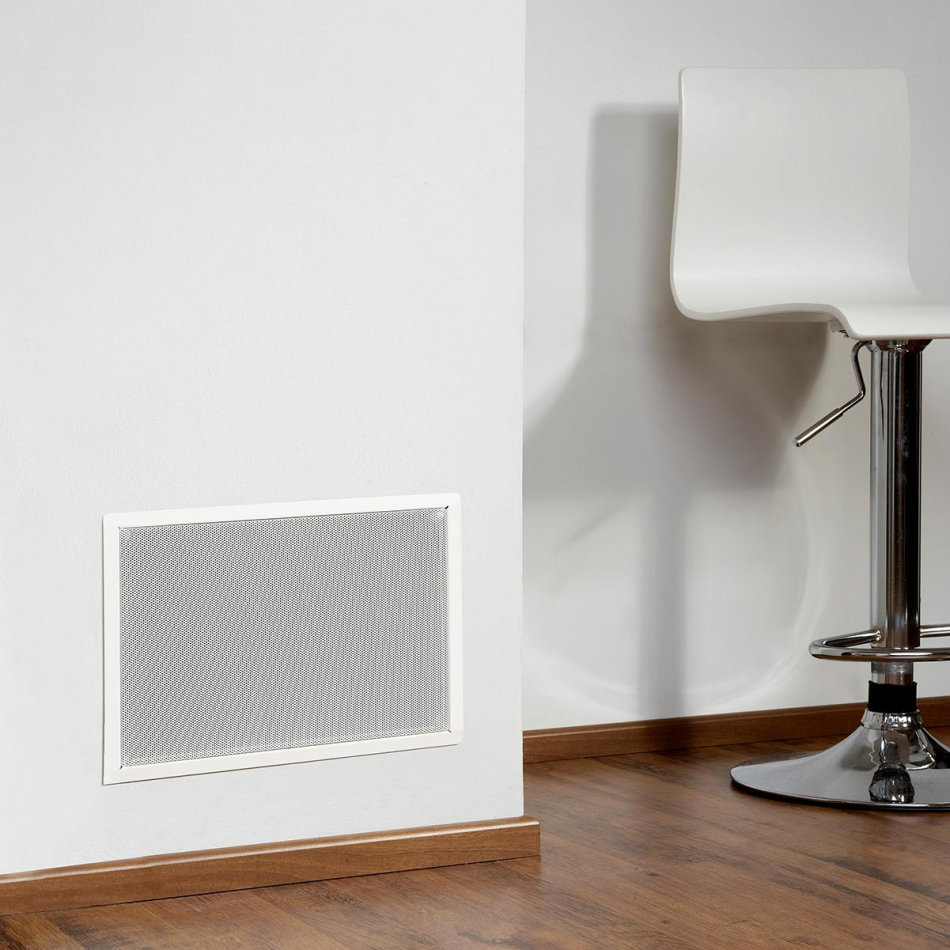
1 x 5041A Subwoofer
1 x RAM3 amplifier unit
1 x mains cable 1,8 m
1 x grille + grille frame
3 x M4x16 thumb screws for grille frame
3 x M4x30 thumb screws for grille frame
3 x plastic washer for grille frame
4 x enclosure mounting bracket
12 x screws for enclosure mounting brackets
1 x table support bracket for RAM3
2 x M4 screws for table support backet
1 x 2-position terminal block
1 x 4-position terminal block
1 x operating manual
